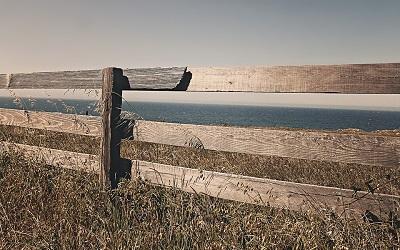Day 231, Year of #Mygration: Migration in the Age of National State

Following yesterday’s post that looked at mapping the margins of Europe through the lens of race, migration and belonging, today Dr Agnes Czajka, Senior Lecturer at The Open University, discusses the relationship between nation-state building and its borders and migration. She uses for reference an article titled 'Migration in the age of the nation state: migrants, refugees and the natural order of things' that she published in Alternatives: Global, Local, Political.
In a previous post, we referred to 'the Caravan' heading to the USA from Central America and in another, we covered the Muslim ban. Today’s post will remind us of another word used in the migration debate and nation building narratives, the Border Wall. Today’s post highlights how opinion-formers can use migration to rally those who share their views, alienate those whose views on migration are not aligned to theirs and promote policies that make it difficult for refugees to seek sanctuary. People have the right to seek asylum if they fear persecutions, we should refrain from using nation building to impede other people’s right to seek asylum, especially if our nations are signatories to the 1951 Refugee Convention.
This article explores the historical and contemporary relationship between migration and the global international order. More specifically, it explores the relationship between migration and the constitution of nation-states. Turning conventional wisdom on its head, the article argues that migration (and more often than not, forced migration) was one of the fundamental technologies through which the nation-state and thus, the global international order were produced.
Whilst most analyses of historical and contemporary migration acknowledge that the emergence, consolidation and global dominance of the nation-state have produced unprecedented numbers of migrants and refugees, they pay considerably less attention to the manner in which the nation-state and the global international order have (and could have only) come into being through processes of migration.
The article begins from the premise that it is not simply the nation form that has had a constitutive effect on contemporary migration, but that it is, in fact, the racialization and naturalization of the nation, or in other words, the emergence and coming into dominance of a particular kind of nation that ushers in a profound transformation in the manner in which migrants and refugees are constructed and governed. This article first analyzes the emergence and transformation of the nation form in Europe and the subsequent consolidation of this ‘national order of things’. Second, it attempts to show how population movements, exchanges, and shuffles—in short, migration—was at the center of the technologies through which this ‘national order of things’ was constructed. The article ends with the argument that this global international order continues to delimit the field of possibilities available to migrant populations, and structure the manner in which migration is thought about, governed and practiced.
Contact our news team
For all out of hours enquiries, please telephone +44 (0)7901 515891
Contact detailsNews & articles

OU researchers lead international advances in planetary protection
Open University researchers are leading international advances in planetary protection, helping ensure that space exploration is safe, sustainable, and scientifically rigorous.